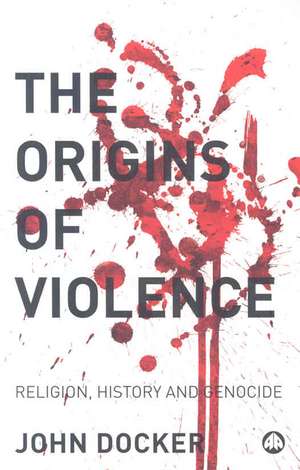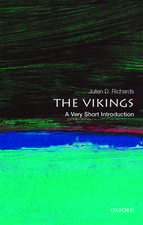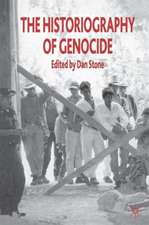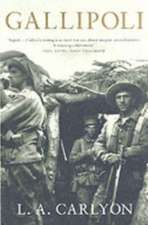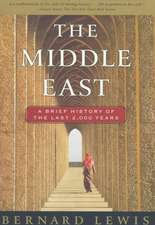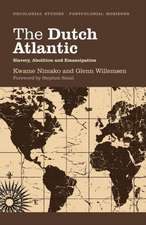The Origins of Violence: Religion, History and Genocide
Autor John Dockeren Limba Engleză Paperback – 19 aug 2008
Genocide features widely in the Bible, the literature of ancient Greece and Rome, and debates about the Enlightenment. These texts are studied in depth to trace the origins of violence through time and across civilisations. Developing the groundbreaking work of Raphaël Lemkin, who invented the term 'genocide', Docker guides us from the dawn of agricultural society, through classical civilisation to the present, showing that violence between groups has been integral to all periods of history.
This revealing book will be of great interest to those wishing to understand the roots of genocide and why it persists in the modern age.
Preț: 209.22 lei
Nou
Puncte Express: 314
Preț estimativ în valută:
40.03€ • 43.62$ • 33.73£
40.03€ • 43.62$ • 33.73£
Carte tipărită la comandă
Livrare economică 23 aprilie-07 mai
Preluare comenzi: 021 569.72.76
Specificații
ISBN-13: 9780745325439
ISBN-10: 0745325432
Pagini: 272
Dimensiuni: 135 x 215 x 18 mm
Greutate: 0.34 kg
Editura: PLUTO PRESS
Colecția Pluto Press
ISBN-10: 0745325432
Pagini: 272
Dimensiuni: 135 x 215 x 18 mm
Greutate: 0.34 kg
Editura: PLUTO PRESS
Colecția Pluto Press
Notă biografică
John Docker is Adjunct Senior Research Fellow, Humanities Research Centre, Australian National University. He is the author of 1492: The Poetics of Diaspora (2001), Postmodernism and Popular Culture (1994) and (with Ann Curthoys) Is History Fiction? (2005).
Cuprins
Dedication: this book is dedicated to Ned Curthoys
Preface, Acknowledgements, and Contents Page
Introduction
1. Genocide as Ancient Practice: Chimpanzees, Humans, Agricultural Society
2. Genocide, and Questioning of Genocide, in Classical Greece: Herodotus and Thucydides
3. Genocide, Trauma, and World Upside Down in Ancient Greek Tragedy: Aeschylus and Euripides
4. Utopia and Dystopia: Plato and Cicero's Republics
5. Victimology and Genocide: The Bible's Exodus, Virgil's Aeneid
6. Roman Settler Imperialism in Britain: Narrative and Counter Narrative in Tacitus' Agricola and Germania
7. The Honourable Colonizer
8. Was the Enlightenment the origin of the Holocaust?
Conclusion: Can there be an end to violence?
References
Index
Preface, Acknowledgements, and Contents Page
Introduction
1. Genocide as Ancient Practice: Chimpanzees, Humans, Agricultural Society
2. Genocide, and Questioning of Genocide, in Classical Greece: Herodotus and Thucydides
3. Genocide, Trauma, and World Upside Down in Ancient Greek Tragedy: Aeschylus and Euripides
4. Utopia and Dystopia: Plato and Cicero's Republics
5. Victimology and Genocide: The Bible's Exodus, Virgil's Aeneid
6. Roman Settler Imperialism in Britain: Narrative and Counter Narrative in Tacitus' Agricola and Germania
7. The Honourable Colonizer
8. Was the Enlightenment the origin of the Holocaust?
Conclusion: Can there be an end to violence?
References
Index
